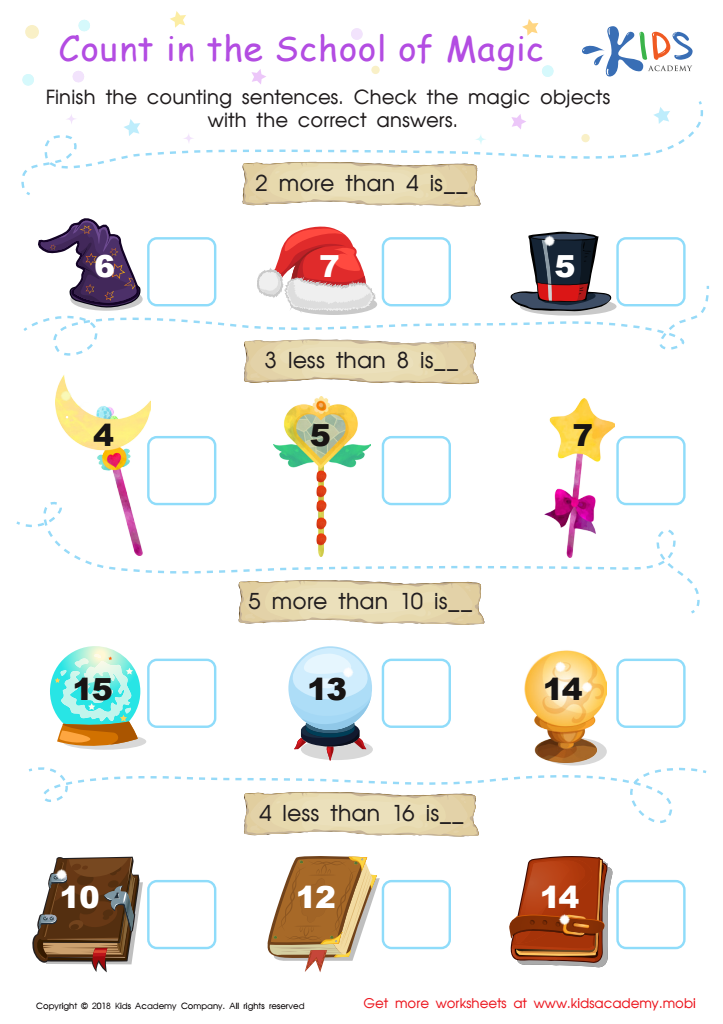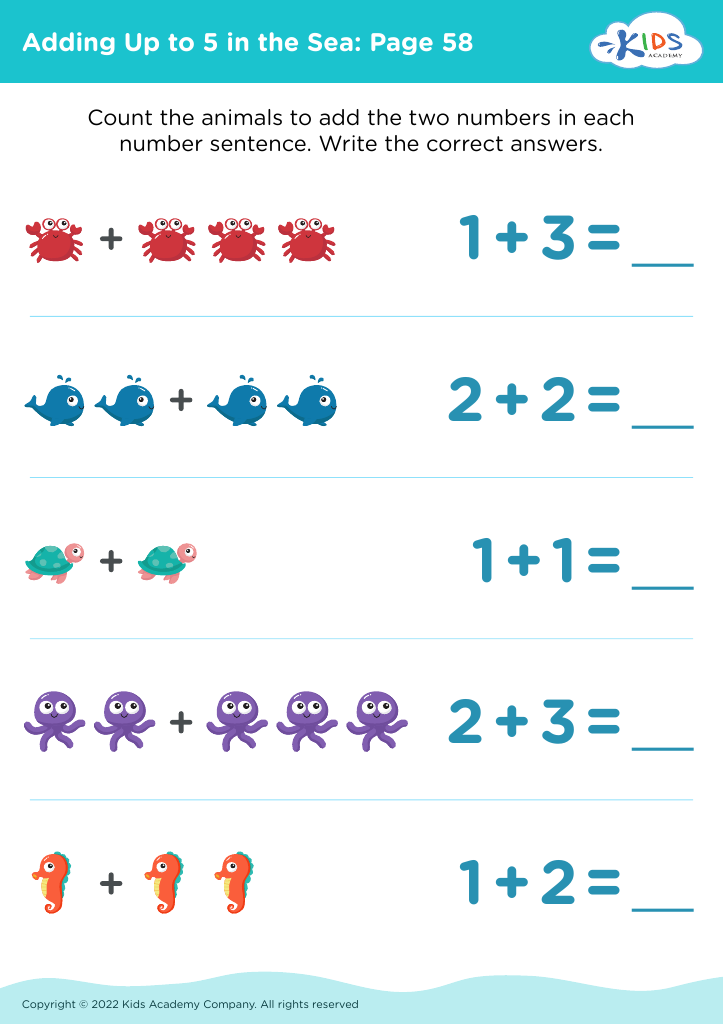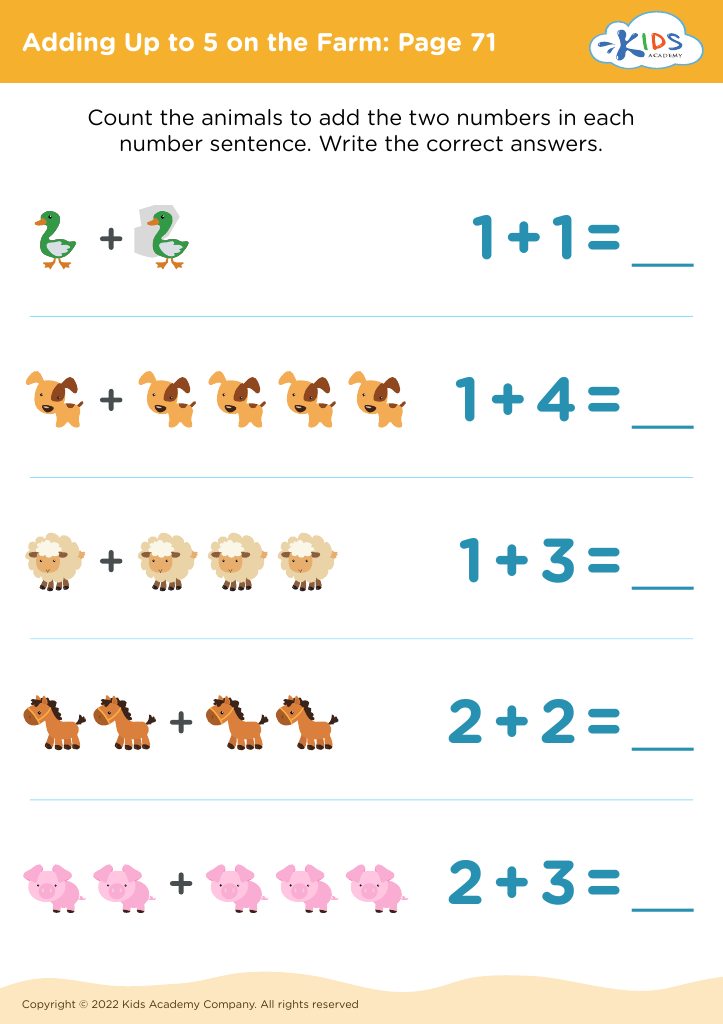Observational skills Addition & Subtraction Worksheets for Ages 3-5
3 filtered results
-
From - To
Enhance your child's foundational math skills with our Observational Skills Addition & Subtraction Worksheets designed for ages 3-5. These engaging worksheets stimulate young minds by combining fun and learning, allowing children to develop critical observational skills that are essential for math success. Through colorful illustrations and hands-on activities, kids will practice counting, identifying numbers, and solving simple addition and subtraction problems. Our carefully curated resources encourage independent learning while fostering curiosity and promoting cognitive development. Empower your little learners with the tools they need to build confidence in math. Explore the joy of learning with our delightful worksheets today!


Count in the School of Magic Worksheet
Observational skills in addition and subtraction for children ages 3-5 are foundational for their cognitive development and academic success. During this crucial stage, children learn by interacting with their environment, making observations, and recognizing patterns. By fostering these skills, parents and teachers can help young learners understand basic mathematical concepts in a concrete and meaningful way.
Developing observational skills enhances a child's ability to notice differences and similarities, compare quantities, and grasp the concepts of more and less, which are essential to addition and subtraction. Early exposure through games, hands-on activities, or everyday situations, like counting toys or sharing snacks, promotes active engagement and makes math more relatable.
Moreover, strong observational skills support problem-solving, critical thinking, and symbolic reasoning. These skills are essential as children progress in their education. Parents and teachers create an enriching learning atmosphere that promotes curiosity and exploration when they actively engage young learners in numeracy activities.
In short, cultivating observational skills in addition and subtraction equips young children with the confidence and tools they need for future academic challenges, setting the foundation for success in mathematics and beyond.



 Assign to My Students
Assign to My Students

















